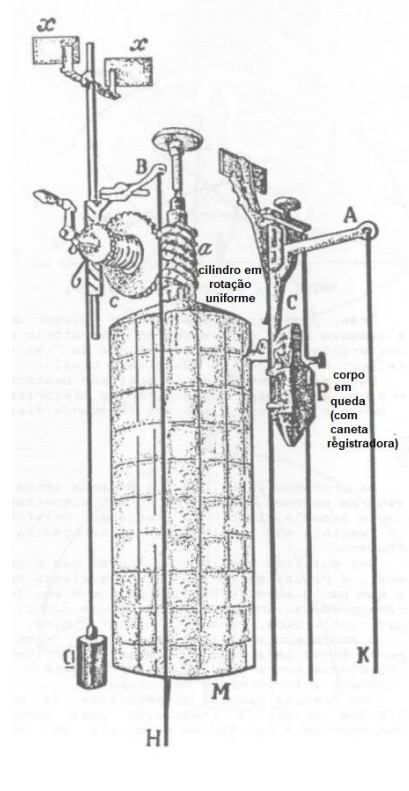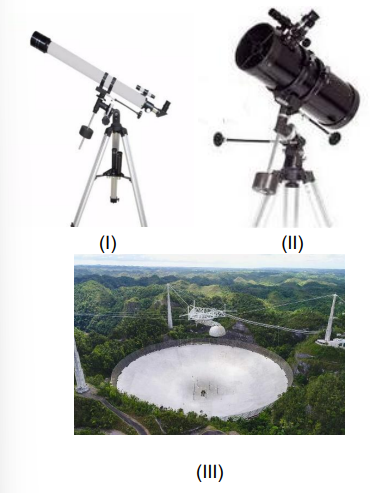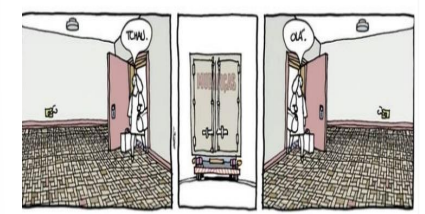Questões de Vestibular
Foram encontradas 68.627 questões
Resolva questões gratuitamente!
Junte-se a mais de 4 milhões de concurseiros!



[...] Iracema saiu do banho: o aljôfar d’água ainda a roreja, como à doce mangaba que corou em manhã de chuva. Enquanto repousa, empluma das penas do gará as flechas de seu arco, e concerta com o sabiá da mata, pousado no galho próximo, o canto agreste. A graciosa ará, sua companheira e amiga, brinca junto dela. Às vezes sobe aos ramos da árvore e de lá chama a virgem pelo nome; outras remexe o uru de palha matizada, onde traz a selvagem seus perfumes, os alvos fios do crautá, as agulhas da juçara com que tece a renda, e as tintas de que matiza o algodão. Rumor suspeito quebra a doce harmonia da sesta. Ergue a virgem os olhos, que o sol não deslumbra; sua vista perturba-se. Diante dela e todo a contemplá-la está um guerreiro estranho, se é guerreiro e não algum mau espírito da floresta. Tem nas faces o branco das areias que bordam o mar; nos olhos o azul triste das águas profundas. Ignotas armas e tecidos ignotos cobrem-lhe o corpo. [...]
ALENCAR, José de. Iracema. São Paulo: Ática, 2004.
Considerando esse excerto da obra e o contexto de toda a narrativa, assim como as características do Romantismo, analise as assertivas e assinale a alternativa correta.
I. Iracema é uma obra romântica, exercendo, portanto, a função de literatura crítica, denunciando a desumanidade e o apagamento cultural dos nativos implicados no processo de colonização.
II. A representação da natureza no contexto do Romantismo ocorre de maneira idealizada, ressaltando as belezas do Brasil, o que indica a presença de um nacionalismo ufanista na obra.
III. O protagonismo feminino verificado em Iracema visa à representação da mulher como figura emancipada, dona de seu destino, surgindo heroínas independentes do poder masculino.
IV. A linguagem é um aspecto fundamental no Romantismo, de modo que, embora o texto de Iracema seja em prosa, observam-se marcas líricas, com aguçado tom poético, na construção da narrativa.
V. Em Iracema, o colono surge como herói da narrativa, sendo o par romântico da nativa, reforçando o discurso de harmonia entre os colonos e os indígenas.
Com base no seguinte excerto de Vidas Secas, assinale a alternativa correta.
[...]
Na planície avermelhada os juazeiros alargavam duas manchas verdes. Os infelizes tinham caminhado o dia inteiro, estavam cansados e famintos. Ordinariamente andavam pouco, mas como haviam repousado bastante na areia do rio seco, a viagem progredira bem três léguas. Fazia horas que procuravam uma sombra. A folhagem dos juazeiros apareceu longe, através dos galhos pelados da catinga rala.
Arrastaram-se para lá, devagar, sinha Vitória com o filho mais novo escanchado no quarto e o baú de folha na cabeça, Fabiano sombrio, cambaio, o aió a tiracolo, a cuia pendurada numa correia presa ao cinturão, a espingarda de pederneira no ombro. O menino mais velho e a cachorra Baleia iam atrás.
Os juazeiros aproximaram-se, recuaram, sumiram-se. O menino mais velho pôs-se a chorar, sentou-se no chão.
[...]
RAMOS, Graciliano. Vidas Secas. 144ª ed. Rio de Janeiro: Record,
2020.
Texto I

Laerte.
Disponível em: https://www.instagram.com/p/CWtk14SFixR/. Acesso em 19 jan. 2022.
Texto II
Mudam-se os tempos, mudam-se as vontades
Luiz Vaz de Camões
Mudam-se os tempos, mudam-se as vontades,
Muda-se o ser, muda-se a confiança;
Todo o mundo é composto de mudança,
Tomando sempre novas qualidades.
Continuamente vemos novidades,
Diferentes em tudo da esperança;
Do mal ficam as mágoas na lembrança,
E do bem, se algum houve, as saudades.
O tempo cobre o chão de verde manto,
Que já coberto foi de neve fria,
E em mim converte em choro o doce canto.
E, afora este mudar-se cada dia,
Outra mudança faz de mor espanto:
Que não se muda já como soía.
Disponível em: https://www.escritas.org/pt/t/2513/mudam-se-ostempos-mudam-se-as-vontades. Acesso em 17 jan. 2022.
Glossário:
Soía: costumava
Texto I

Laerte.
Disponível em: https://www.instagram.com/p/CWtk14SFixR/. Acesso em 19 jan. 2022.
Texto II
Mudam-se os tempos, mudam-se as vontades
Luiz Vaz de Camões
Mudam-se os tempos, mudam-se as vontades,
Muda-se o ser, muda-se a confiança;
Todo o mundo é composto de mudança,
Tomando sempre novas qualidades.
Continuamente vemos novidades,
Diferentes em tudo da esperança;
Do mal ficam as mágoas na lembrança,
E do bem, se algum houve, as saudades.
O tempo cobre o chão de verde manto,
Que já coberto foi de neve fria,
E em mim converte em choro o doce canto.
E, afora este mudar-se cada dia,
Outra mudança faz de mor espanto:
Que não se muda já como soía.
Disponível em: https://www.escritas.org/pt/t/2513/mudam-se-ostempos-mudam-se-as-vontades. Acesso em 17 jan. 2022.
Glossário:
Soía: costumava
Analise o excerto a seguir, extraído do Texto II, e assinale a alternativa INCORRETA.
“Mudam-se os tempos, mudam-se as vontades
Muda-se o ser, muda-se a confiança;”.
Texto I

Laerte.
Disponível em: https://www.instagram.com/p/CWtk14SFixR/. Acesso em 19 jan. 2022.
Texto II
Mudam-se os tempos, mudam-se as vontades
Luiz Vaz de Camões
Mudam-se os tempos, mudam-se as vontades,
Muda-se o ser, muda-se a confiança;
Todo o mundo é composto de mudança,
Tomando sempre novas qualidades.
Continuamente vemos novidades,
Diferentes em tudo da esperança;
Do mal ficam as mágoas na lembrança,
E do bem, se algum houve, as saudades.
O tempo cobre o chão de verde manto,
Que já coberto foi de neve fria,
E em mim converte em choro o doce canto.
E, afora este mudar-se cada dia,
Outra mudança faz de mor espanto:
Que não se muda já como soía.
Disponível em: https://www.escritas.org/pt/t/2513/mudam-se-ostempos-mudam-se-as-vontades. Acesso em 17 jan. 2022.
Glossário:
Soía: costumava
Texto I

Laerte.
Disponível em: https://www.instagram.com/p/CWtk14SFixR/. Acesso em 19 jan. 2022.
Texto II
Mudam-se os tempos, mudam-se as vontades
Luiz Vaz de Camões
Mudam-se os tempos, mudam-se as vontades,
Muda-se o ser, muda-se a confiança;
Todo o mundo é composto de mudança,
Tomando sempre novas qualidades.
Continuamente vemos novidades,
Diferentes em tudo da esperança;
Do mal ficam as mágoas na lembrança,
E do bem, se algum houve, as saudades.
O tempo cobre o chão de verde manto,
Que já coberto foi de neve fria,
E em mim converte em choro o doce canto.
E, afora este mudar-se cada dia,
Outra mudança faz de mor espanto:
Que não se muda já como soía.
Disponível em: https://www.escritas.org/pt/t/2513/mudam-se-ostempos-mudam-se-as-vontades. Acesso em 17 jan. 2022.
Glossário:
Soía: costumava
I. A charge da cartunista Laerte e o poema de estrutura não fixa de Camões relacionam-se de modo intertextual, uma vez que abordam uma mesma temática: mudanças.
II. O poema de Camões apresenta um eu lírico que se centra nas mudanças ocorridas na natureza, conforme se observa nos versos “O tempo cobre o chão de verde manto/ Que já coberto foi de neve fria”.
III. Na charge, apesar desta retratar um contexto positivo para a personagem ao evidenciar que todo fim (primeiro quadrinho) traz com ele um recomeço (terceiro quadrinho), Laerte convoca o leitor a refletir sobre a temática da solidão, já que apresenta a personagem solitária nos dois ambientes ilustrados.
IV. Com foco no indivíduo, a charge sugere que a mudança está em cada um, independente do local onde se estiver; já o poema propõe uma reflexão mais coletiva sobre o tema, como se pode confirmar no verso “Todo o mundo é composto de mudança”.